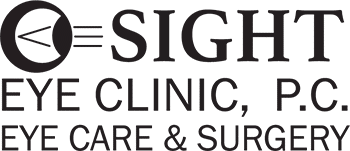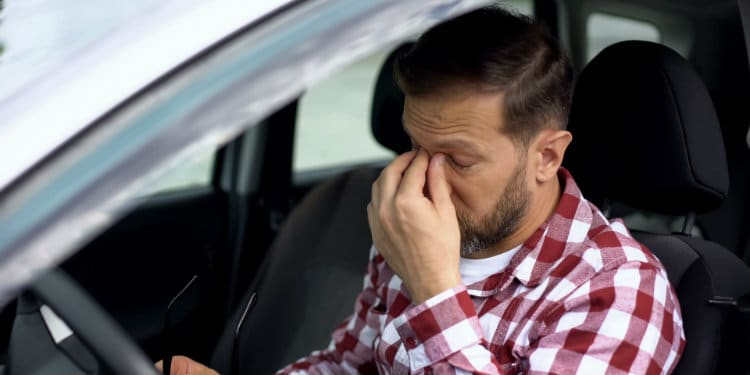Keeping Clear Eyes While Winter Driving
You should naturally pay close attention to the road any time of season you are driving, but winter has ways of testing your driving skills in “hard mode.” Black ice, drifting snow, and other drivers fishtailing in front of you are just a few of the extra “features” that make having a fast response time a necessity.
Winter driving demands that your senses are always alert—especially your eyes. Possessing clear vision and an unhindered ability to read the road ahead of you can save you your car, your life, or the life of another.
Thankfully, a little forethought and preparedness can go a long way toward preparing your eyes for winter driving. Here are few wintry conditions and hazards to keep in mind.
Long Nights
Our first stop is something we don’t tend to keep first in mind when we think of potential winter hazards. In terms of the sheer amount of time we must face it, however, the darkness of winter is something that should be addressed.
As far as our eyes are concerned, one of the biggest problems of night driving is the glare we face from oncoming traffic. Vehicles that have newer, brighter lights can be especially bothersome for some of us (although they serve their drivers extremely well).
If especially bright headlights are staring you down, it may help to briefly angle your eyes more toward the right side of the road until they pass. The white line on the right side of most roads can be a good guide, but don’t lose sight of what is in front of your car as well!
Glare also tends to be worse when you’re viewing the road through smudged or dirty lenses. This includes both your windshield and your glasses, if you wear any.
If your windshield wipers aren’t up to snuff and causing your windshield to streak, replace them. Now. You don’t want your wipers to fail you after you’ve been hit by a brown slushball from a passing truck, turning your nighttime viewing into a hazy kaleidoscope of beams.
IF you wear glasses, it’s a good practice to clean them each morning with a soft cloth and proper cleaning solution, and if you happen to need it anytime else during the day. There is never really a good time to clean your glasses while you’re driving. Even better, consider an anti-reflective coating on your glasses if you do not have it.
The Sun
While night can be nasty for glare, some days can be just as bad.
A fresh, white layer of snow on the ground is extremely good at reflecting light. It can bounce and scatter a great deal of light up into your face on bright days, making sunglasses an effective tool even on days the sun isn’t out for very long.
Polarized sunglasses have handy anti-reflective properties. Having a go-to pair in your car for winter driving can be especially helpful. If you wear prescription lenses, having prescription sunglasses or lenses that fit over your current glasses are good alternatives.
If you have the “transition” style of lenses that swap between “normal” and “sunglasses” mode, they may not help you beat snowy glare in your car. Transition-style lenses activate when exposed to UV light, and many styles of windshield block this.
Even so, don’t toss those UV-blocking lenses when you’re outdoors! When you don’t have any UV shielding, the reflective properties of snow can make it easier to damage your eyes, leading to pain and temporary loss of vision.
This is often referred to as “snowblindness,” and is basically sunburning your eyes. Anyone who is out in the snow for long periods of time—especially at higher altitudes—should take precautions against it and use UV-blocking eyewear.
Dry Air
Many of us know that the air can get dry and crisp during the winter. It can cause some discomfort on our skin, but also be bad for our eyes.
Irritation from dry eyes can be a persistent problem through the season, and sometimes our driving habits can make them worse—whether we know what we’re doing or not!
First of all, make sure your heating vents are angled in such a way that hot air is not blowing into your face. You wouldn’t stare down a hair dryer all day, even on its lowest setting. A heating vent is pretty much the same thing.
This next tip will likely sound a bit silly, but don’t forget to blink!
Blinking is, of course, the way we naturally refresh the surface of our eyes with fluid, preventing dryness. However, when we are very focused and attentive on something (such as, say, staying on the road during a winter storm), our tendency is to blink less. Keeping mindful of blinking during these times can help our eyes stay more clear and comfortable overall.
If you are having chronic trouble with dryness in winter, eye drops may help. Just make sure not to use them immediately before driving, as they can make vision blurry for a minute or two after application. If drops don’t help, or you don’t prefer them, come see us for help!
Get a Professional Checkup!
If it has been more than a year since your last eye exam, or you are experiencing problems that are concerning you, it’s time to give us a call.
Addressing any potential problems that might be affecting your vision—or impairing it when you and your loved ones need it most!—can help prevent serious problems on the road.
From changes in prescription, to taking care of cataracts that can increase glare, the doctors at Sight Eye Clinic can help. Now that the holiday rush is through, it’s the perfect time to take care of your personal health.
Call our Holland and Zeeland area office at (616) 772-2020 or fill out our online contact form to get in touch with us. Just like Michigan’s roads, don’t wait for things to get better. Contact us today!


